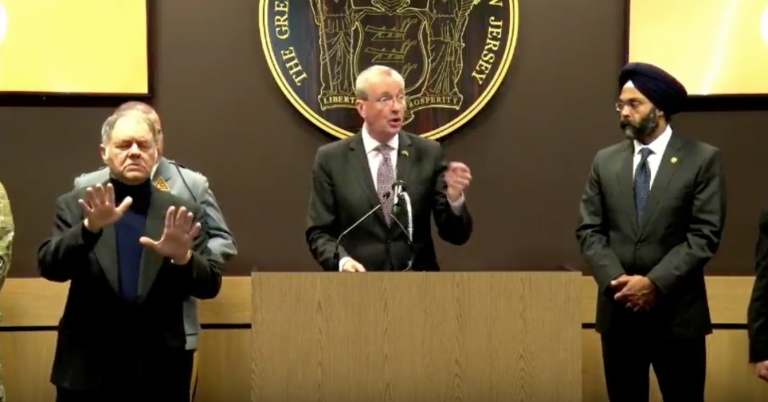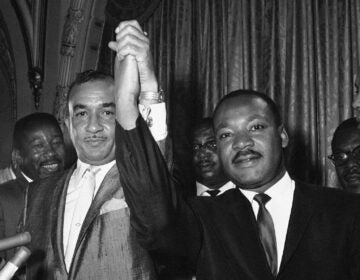Gov. Murphy declares state of emergency in advance of nor'easter
New Jersey Gov. Phil Murphy declared a state of emergency Tuesday afternoon in advance of another nor'easter that is set to impact New Jersey with snow, wind, flooding.

New Jersey Gov. Phil Murphy speaks during a Tuesday afternoon press conference. (New Jersey Office of the Governor/YouTube)
UPDATE: New Jersey state offices will be closed for non-essential employees on Wednesday, according to the New Jersey Office of Emergency Management.
New Jersey Gov. Phil Murphy declared a state of emergency Tuesday afternoon in advance of another nor’easter that is set to impact New Jersey with snow, wind, and tidal flooding.
The state of emergency for New Jersey will go into effect at 8 p.m. Tuesday.
In a press conference at the State Police operations center in West Trenton, Murphy asked residents to exercise “common sense” in dealing with the impending storm.
The National Weather Service envisions the most snow to fall away from the Jersey Shore, where the current forecast calls for 3-4″ of wet, heavy accumulations in interior Monmouth County and lesser amounts to the south and along the coast. Areas to the north and west of I-95 are likely to see the most snow accumulations.
Latest snowfall forecast map from multiple @NWS offices. Relatively minor changes on the overnight update cycle. pic.twitter.com/bcNl3ZsgDS
— Gary Szatkowski (@GarySzatkowski) March 6, 2018
Although gusty winds and tidal flooding are also in the forecast, forecasters anticipate lesser impacts than last week’s storm. Read the National Weather Service’s briefing here to learn more.
The state of emergency declaration authorizes the state to activate and coordinate the preparation, response and recovery efforts for the storm with all county and municipal emergency operations and governmental agencies.
Here are some answers to commonly asked questions about a State of Emergency.
Can I drive?
From NJOEM: “The Governor’s declaration does not normally restrict citizen movements or activities. The State may limit access to affected areas due to concerns for public safety but will notify the public of these restrictions. If it is necessary to impose vehicular or personal movement restrictions, the New Jersey Office of Emergency Management will alert the public using all available means, including, but not limited to: the Emergency Alert System, urgent press releases, DOT highway signs, law enforcement teletypes, etc. Every effort will be made by NJOEM to facilitate safe passage for utility, health care and emergency services workers whose presence is necessary for public safety or in response to the Emergency.”
How long will it last?
From NJOEM: “The Governor will rescind the State of Emergency when it is no longer needed to provide necessary support to localities or until the threat of impending danger from the event has passed.”
Does it bar commerce?
From NJOEM: “The Governor’s declaration does not address restrictions on the sale or provision of goods or services. However, your locality may enact restrictions under their local emergency declaration. We recommend that you contact your local government for any specific information.”
Does my employer still have to pay me?
From NJOEM: “The Governor’s declaration does not mandate administrative policies for individual businesses or address workplace situations in which employees are unable to travel. Businesses must address hours of operation and compensation on an individual basis. Once a federal disaster is declared, employees unable to work may be eligible for unemployment assistance.”
WHYY is your source for fact-based, in-depth journalism and information. As a nonprofit organization, we rely on financial support from readers like you. Please give today.




